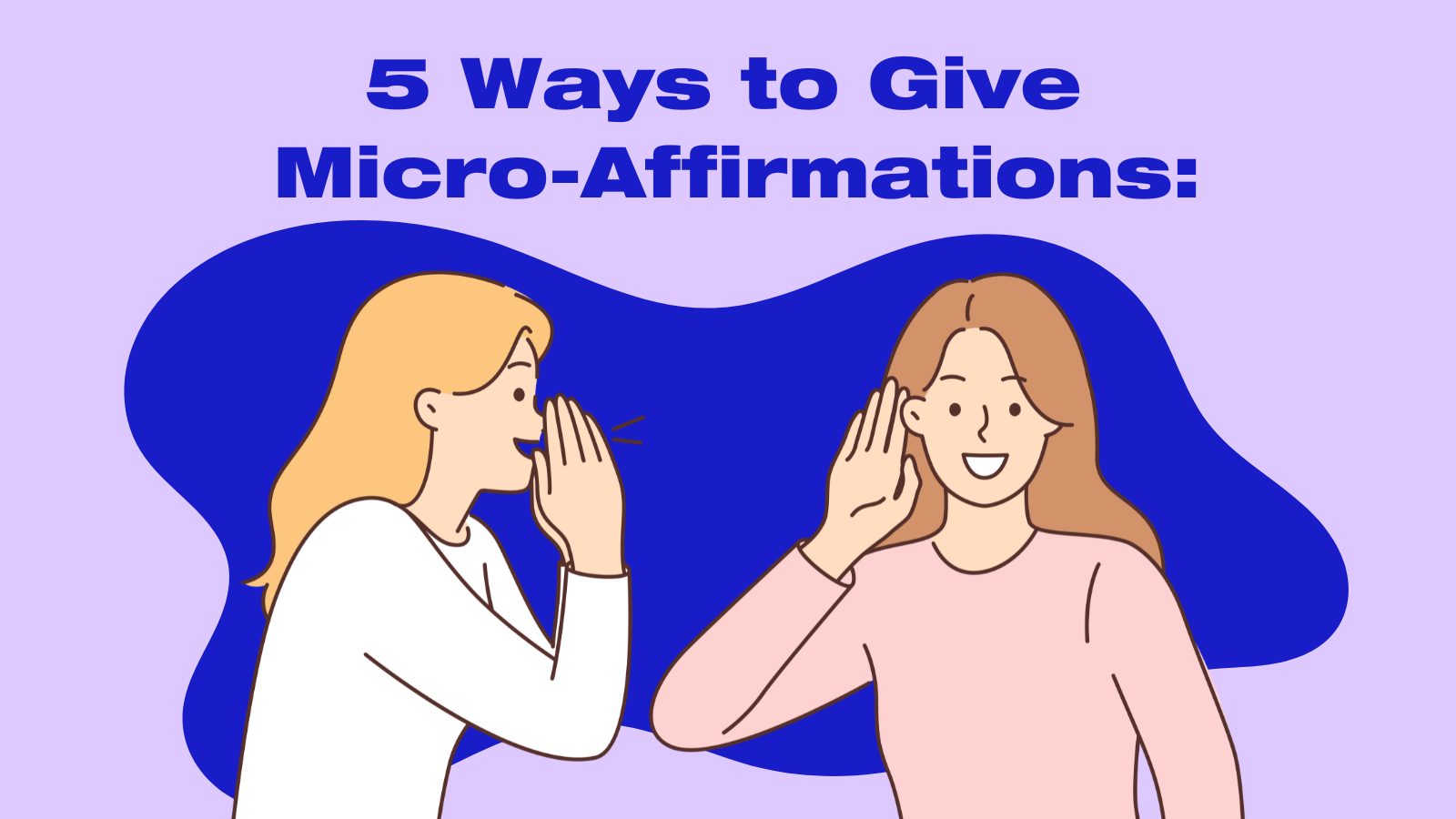5 Ways to Give Micro-Affirmations: Building inclusion, one gesture at a time
In today’s world, where the discourse around inclusivity and diversity is gaining momentum, it's essential to understand not only the negative impacts of micro-aggressions but also the positive effects of micro-affirmations. Micro-affirmations, the quieter yet equally powerful counterpart of micro-aggressions, play a significant role in fostering a sense of belonging and validation. They are the subtle gestures, both verbal and non-verbal, that make individuals feel seen, heard, and valued in their environments.
Why are micro-affirmations important? They address fundamental human needs such as value, belonging, uniqueness, respect, and equity. Especially in fast-paced work environments where meeting targets often takes precedence, these small acts of affirmation can have a profound impact on morale and productivity. For those who frequently experience micro-aggressions, micro-affirmations serve as validation for their experiences and contributions.
To understand how to incorporate micro-affirmations into everyday interactions, let’s delve into five effective ways to give them:
Active Listening: One of the most powerful forms of micro-affirmation is active listening. Give someone your full attention when they're speaking. Maintain eye contact, nod, and provide verbal cues like "I understand" or "That makes sense." This simple act demonstrates respect and validation for the speaker's thoughts and feelings.
Creating Opportunities for Participation: Actively invite others to contribute to discussions or decision-making processes. Say things like "We'd love to hear your thoughts on this" or "Would anyone else like to weigh in?" By encouraging diverse perspectives, you signal that everyone's input is valued and welcomed.
Expressing Empathy and Support: In times of difficulty or challenge, offering empathy and support can be incredibly affirming. Say things like "I'm here for you if you need to talk" or "I understand this must be hard for you." Demonstrating understanding and compassion fosters a sense of connection and belonging.
Recognizing Achievements: Celebrate and acknowledge the accomplishments of others. Whether it's completing a project or meeting goals, take the time to express recognition. Say things like "Congratulations on your achievement" or "Great job on meeting your targets." This acknowledgment boosts morale and reinforces positive behavior.
Expressing Curiosity and Interest: Show genuine interest in others' experiences and perspectives. Ask open-ended questions like "Tell me more about that" or "What are your thoughts on this?" By demonstrating curiosity, you validate the importance of diverse viewpoints and create opportunities for meaningful dialogue.
It's important to note that while micro-affirmations are powerful, they don’t fix broader structural issues within an organisation. However, they are a crucial step towards building a culture where everyone feels valued and included.
Incorporating micro-affirmations into daily interactions requires self-awareness, attentiveness, and openness to learning. It's about going beyond mere niceties and creating genuine connections with those around you. By embracing micro-affirmations, you contribute to a more inclusive and supportive environment for all.
So, the next time you're in a meeting, engaging with colleagues, or interacting with friends and family, remember the power of micro-affirmations. Your small gestures of affirmation can have a big impact on someone's sense of belonging and worth. Let's build a culture of inclusion, one gesture at a time.
Want more? Watch this video:

